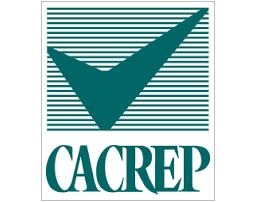M.Ed. in Counselor Education

APPLY to the VCU Accelerated B.S. Psychology to M.Ed. in Counselor Education Program!
The application for the VCU Accelerated B.S. Psychology to M.Ed. in Counselor Education is live and taking applications through January 15, 2024.
Please submit this Psychology Department interest form to stay updated on this program and next steps
 The M.Ed. in counselor education provides students with the specialized knowledge and skills required for placement in elementary, middle and high schools, as well as postsecondary institutions.
The M.Ed. in counselor education provides students with the specialized knowledge and skills required for placement in elementary, middle and high schools, as well as postsecondary institutions.
Our programs are nationally accredited by the Council for Accreditation of Counseling and Related Educational Programs (or CACREP), providing prospective students (and their potential future employers) a good indicator of their thoroughness.
Admission to these 60-hour programs is highly competitive, and the faculty makes every effort to assist students in individualizing a graduate program to match their professional needs and interests.
The M.Ed. in Counselor Education program has three concentrations: college counseling and student affairs, school counseling, and couples and family counseling. Each concentration embeds the academic requirements for the Licensed Professional Counselor (LPC) into the program. Additional information about the requirements to complete the LPC professional requirements in Virginia can be found here.
Current VCU undergraduate junior standing psychology students may be eligible for the Accelerated B.S. in Psychology to M.Ed. in Counselor Education program. Admissions requirements and deadlines are the same as the general application process. Learn more here.
Program Mission Statement
The Counselor Education program at Virginia Commonwealth University is committed to excellence in the preparation and continuing development of professionals in counseling and counselor education. The program provides graduate students with research-based professional and clinical experiences necessary for effective counseling, supervision, teaching, advocacy and leadership in diverse settings.
Student Handbooks
- M.Ed. in Counselor Education 2022 (and before) Cohort Handbook [PDF]
- 2023-2024 M.Ed. Counselor Education Handbook [PDF]
Note: The 2024-2025 Cohort Handbook will be released in spring 2024
CONCENTRATIONS/VCU BULLETIN INFO
- College counseling and student affairs
- School counseling
- Couples and family counseling
- VCU Accelerated B.S. to M.Ed.
PROGRAM BASICS
How to apply: Graduate application
Semester of entry: Summer
Application deadline: Jan. 15
Required interview: Friday, February 9 (8am-2pm)Resources and Checklists
Application Checklist - M.Ed. in Counselor Education [PDF]
Psychology Accelerated Application Checklist [PDF]
M.Ed. in Counselor Education 2022 (and before) Cohort Handbook [PDF]
2023-2024 M.Ed. Counselor Education Handbook [PDF]
Note: The 2024-2025 Cohort Handbook will be released in spring 2024
ADMISSION REQUIREMENTS
- General admission requirements of the VCU Graduate School
- Bachelor’s degree
- Three letters of recommendation addressing the student's potential for graduate study in education
- Statement of intent
- Transcripts of all previous college work
- Personal interview (Required interview: Friday, February 9, 8am-2pm)
Previous Webinars
Missed out on our last graduate programs webinar? You can still get all the information from the webinar's PowerPoint slideshow.
Program Concentrations
The college counseling and student affairs concentration prepares critically reflective counselors with specialized knowledge and skills required for placement in postsecondary institutions.
Through coursework and clinical experiences, students obtain knowledge of basic counseling theory and practice, competencies in essential counseling services, skills necessary to evaluate evidence-based research and to implement it in practice, and a dedication to continuing professional development.
The program is accredited by the Council for Accreditation of Counseling and Related Educational Programs and requires a minimum of two years of study to complete.
Degree requirements for the college counseling and student affairs concentration »
Please keep in mind, however, that the exact course requirements may vary depending on when you matriculated into the program, so please consult your adviser or the program coordinator with any additional questions.
Our school counseling concentration of the M.Ed. program prepares graduates to be critically reflective, with a professional understanding of basic counseling theory and practice, competencies in essential counseling services, the ability to evaluate evidence-based research and implement it in practice, and a dedication to continuing professional development.
The program is accredited by the Council for Accreditation of Counseling and Related Educational Programs and requires a minimum of two years of study to complete.
Degree requirements for the school counseling concentration »
Please keep in mind, however, that the exact course requirements may vary depending on when you matriculated into the program, so please consult your adviser or the program coordinator with any additional questions.
M.Ed. in counselor education with a concentration in couples and family counseling is a 60-credit hour program designed to prepare students for careers as counselors in clinics, healthcare centers, schools and private practice. The program focuses on training to address a range of personal and professional problems faced by individuals, couples and families through a systemic framework. As our newest concentration, we are eager to pursue accreditation for the couples and family counseling concentration with the Council for Accreditation of Counseling and Related Programs (CACREP) during our next review cycle. Upon successful approval from CACREP, it will be added to our existing accredited specialty areas (i.e., school counseling, college counseling and student affairs concentrations). Per CACREP policy, students who graduate from this concentration up to 18 months prior to accreditation would be recognized as graduates of a CACREP-accredited program.
The course sequence meets the educational requirements for both the Licensed Professional Counselor (LPC) and Licensed Marriage and Family Therapist (LMFT) as set by the state of Virginia Department of Health Professions. The Couple and Family Counseling concentration meets the licensure requirements for others states; however, certain states have different requirements. It is the responsibility of the student to check with the state licensure board to verify the necessary requirements to be eligible for licensure and to plan on meeting those requirements. The program requires a minimum of two years of study to complete.
Coursework
Program Core (33 credit hours)
- CLED 600 – Professional Orientation and Ethical Practice in Counseling
- CLED 601 – Theories of Counseling
- CLED 602 – Techniques of Counseling
- CLED 603 – Group Procedures in Counseling
- CLED 605 – Career Information and Exploration
- CLED 606 – Assessment Techniques for Counselors
- CLED 607 – Multicultural Counseling in Educational Settings
- CLED 612 – Seminar in Counseling
- CLED 640 – Marriage, Couple, and Family Counseling
- CLED 650 – Addiction Counseling
- CLED 660 – Mental Disorders, Diagnosis and Treatment Planning
Concentration Courses (21 credit hours)
- CLED 644 – Sexuality Counseling
- CLED 645 – Couples Counseling
- CLED 641 – Advanced Family Counseling
- CLED 609 – Practicum: Couple and Family Counseling
- CLED 672 – Internship: Couple and Family Counseling (six credits)
- Elective
Foundation of Education Courses (6 credit hours)
- CLED/EDUS 615 – Lifespan Development: A Gender Perspective
- EDUS 660 – Research Methods in Education
Student Course Schedules
All students start their program in the summer semester, with a full-time or part-time course option. Students are encouraged to consult with their advisor and pick one of those course scheduling options. The course scheduling options can be found in the Counselor Education M.Ed. Student Handbook (link is below in the Resources section).
Resources
Comprehensive Exam
A final, comprehensive examination is required of all degree candidates. In order to be eligible to take the comprehensive exam, students must have completed CLED/EDUS 615 and EDUS 660 and all counseling core courses (excluding Practicum and Internship). Students are exempt from these requirements if they are graduating in the semester in which the exam is given. Students must be enrolled during the semester in which they take the exam.
The comprehensive exam is a nationally standardized exam for counselors-in-training. It consists of 160 questions. There are 20 items in each of the following areas:
- Human growth and development: studies that provide an understanding of the nature and needs of individuals at all developmental levels.
- Social and cultural foundations: studies that provide an understanding of issues and trends in a multicultural and diverse society.
- Helping relationships: studies that provide an understanding of counseling and consultation processes (Theories and Techniques).
- Group work: studies that provide an understanding of group development, dynamics, counseling theories, group counseling methods and skills, and other group work approaches.
- Career and lifestyle development: studies that provide an understanding of career development and related life factors.
- Appraisal: studies that provide an understanding of individual and group approaches to assessment and evaluation.
- Research and program evaluation: studies that provide an understanding of types of research methods, basic statistics, and ethical and legal considerations in research.
- Professional orientation and ethics: studies that provide an understanding of all aspects of professional functioning including history, roles, organizational structures, ethics, standards and credentialing (based on the ACA Code of Ethics).
The comprehensive exam is given once per year: typically on the third Saturday in March (dates are subject to change if there is a conflict with university holidays). More detailed information can be found in the 2023-2024 M.Ed. Counselor Education Handbook [PDF].
Graduation Application Information
The accelerated B.S. in Psychology and M.Ed. in Counselor Education programs allow qualified students to earn both the B.S. in Psychology and M.Ed. in Counselor Education in six years by completing approved graduate courses during the senior year of their undergraduate program. Students in the program may count up to 12 hours of graduate courses toward both the B.S and M.Ed. degrees. Thus, the two degrees may be earned with a minimum of 168 credits rather than the 180 credits necessary if the two degrees are pursued separately.
Minimum qualifications for admittance to the program include completion of 75 undergraduate credit hours (either prior to application, or to be completed in the semester of application) including at least one undergraduate CLED course; undergraduate GPA of 3.0 or cumulative GPA of 3.0 on the most recent 60 credits of coursework. Successful applicants would enter the program in the fall semester of their senior year.
Students who are interested in the accelerated program should consult with both a psychology academic adviser and a graduate counselor education adviser as they are nearing the 75 credit threshold. Undergraduate students must have psychology departmental approval (e.g., academic advisor, department chair) to participate in this accelerated program and meet admission criteria of the M.Ed. in Counselor Education program prior to beginning their final year of full-time undergraduate study. This criteria includes the following:
- Three letters of recommendation addressing the student’s potential for graduate study in education (including at least one from a psychology faculty member)
- Current resume
- Statement of intent (please see the 2023-2024 M.Ed. Counselor Education Handbook [PDF] for specific guidelines)
- Transcripts of all previous college work
- Personal interview (to be scheduled after application is received)
Candidates should submit applications for admission immediately following the fall of their junior year, but no later than Jan. 15 of the same academic year. Students enrolled in the accelerated program must complete the accelerated graduate course work (CLED courses) in two semesters during their final year of the baccalaureate program. The entry term for the master’s program will be the next available admission term following the last semester of undergraduate study.
Admission to the master’s program is provisional until the undergraduate degree has been conferred. Upon completion and conferral of the undergraduate degree, with a undergraduate GPA of 3.0 or cumulative GPA of 3.0 on the most recent 60 credits of coursework and minimum grades of B in all 600-level CLED courses, students are fully admitted to the master’s program. To graduate with the M.Ed. in Counselor Education, students will meet graduation requirements of the degree as presented in the bulletin that is effective at the time of their full admission to the master’s program.
Both the undergraduate psychology adviser and the graduate counselor education faculty adviser provide guidance to students admitted to the accelerated program. For full academic program information, please see this page.
We receive a large number of inquiries into our program. In order to help you get the answers more quickly, the counselor education faculty have created a FAQ of the top questions we receive. We also strongly encourage prospective students to review our program website that has a plethora of information including course sequences, handbooks, practicum/internship information, and much much more.
Application Deadlines
Q: Does your office need to receive all application materials by the application deadline? Is the deadline flexible?
A: All application materials need to be turned in by the January 15th deadline. Please note that sometimes individuals writing a letter of recommendation may not turn in the letter by the deadline. We do grant extra time exceptions on a case-by-case basis as long as the contact details for the three recommenders are entered. Please note, however, that three letters of recommendation are required for admission. January 15th is a firm deadline. Late applications are not accepted.
General Admissions Questions
Q: Does your program require the GRE or MAT?
A: No. You do not need to take any standardized test for admission to the M.Ed. in Counselor Education tracks. This includes School Counseling, College Counseling and Student Affairs, and the Couples and Family Counseling tracks.
Q: How long does my statement of intent need to be?
A: While there is no set length or limit, the average submission is typically two to three pages long. Please be specific, however, in noting the key list of points we look for when constructing your statement of intent.
Q: Who should I ask to be a reference?
A: We suggest all three should be individuals who are qualified to evaluate your character, are able to do graduate-level work, and are able to speak to your interpersonal abilities. At least one reference should be an academic reference from a faculty member. Note: We do not accept references from family, friends, or religious leaders (unless the applicant is employed by a religious organization).
Q: Can I meet with faculty?
A: Yes! We typically have two to three virtual/in-person open houses during the fall semester for prospective students. This is a time where we will go over the program and answer any questions you may have. You can learn more about these events by emailing soeinfo@vcu.edu.
Q: Does your program require an interview?
A: Yes. An interview is required as part of your application in order to enroll in our program. The interview process typically happens on a Friday in late January/early February after the deadline for applications has passed. We post the interview date and time each year and expect prospective students to make plans now to have that time available.
Q: Does a cohort model allow for unexpected breaks or a leave of absence if needed?
A: Students may need to take a leave of absence given unforeseen issues or challenges. VCU gives a total of 6 years to complete all degree requirements. If students do get off the cohort model for a semester or two, it may delay your graduation given many classes are only offered once a year. Students are encouraged to speak to their faculty advisor regarding these matters.
Q: Can I continue to work full-time while going to classes?
A: This is a two-part answer to this question.
First part. We do have part-time options for students along with classes that meet at 4pm and 7pm Monday – Thursday. This allows students to take 2-3 classes a semester (including the fall) for the first two years.
Second part. Once students start their practicum and internship placements, this intense period requires the student to be at a site up approximately 8 hours per week for practicum and approximately 35 hours a week during internship. This makes it very difficult to continue to have a full-time job, though a few exceptions can apply for students working in PK-12 schools or university settings on a case-by-case basis. The vast majority of students are not able to continue to work during this time, so please plan accordingly.
Q: Are there graduate assistantships available?
A: The Counselor Education program does not receive funding for assistantships for master’s students; however, students are eligible to apply for some select assistantships on campus. If accepted into the program, more information is provided to students.
Q: How many students get accepted?
A: We accept a different number of students each year depending on the number who graduate, the number of faculty, and as space allows. This information is listed on our website in our Annual Reports.
Q: When will we know about acceptance?
A: We typically let students know about acceptance by mid-February via email.
Q: How long is the program?
A: We have full-time and part-time options. Our full-time option can be completed within 2 ½ years. Our part-time option can be completed within 3 to 4 years. See our handbook for our cohort model course sequence for each track.
Q: What is the job placement rate for graduates of your program?
A: Each year, VCU collects information on the job placement rate of our students. This is reported on our website per CACREP requirements and is listed here.
Q: I see that your program requires all students to pass a Comprehensive Exam in order to graduate. What is the pass rate?
A: Our pass rate is currently 100%. We do have some students that may have to repeat the examination, but we are very proud of our dedicated students. Please note that while we have a 100% pass rate, the Comprehensive Exam is quite rigorous and students take a considerable amount of time to prepare.
Q: I have already started a counseling program elsewhere, will my credits transfer?
A: Potential transfer students must go through the regular application process. If coming from a CACREP-accredited program, potentially up to 9 credits may transfer; however, all transfer credits are subject to review of the faculty. The following courses will not transfer into our programs (Multicultural Counseling, Techniques, Group, Practicum, and Internship).
Practicum and Internship Questions
Q: Can I complete my practicum and internship experiences where I currently work?
A: In some cases, this is possible especially for students working full time in PK-12 schools and or university settings. Please note, however, the sites must meet our requirements and be approved by our Clinical Placement Coordinator as well as your current employer.
Q: How many hours do I need to complete for practicum and internship?
A: Practicum is a total of 100 hours at your placement and is only offered during the fall semester. This means you will average around 8 hours per week. Internship is a total of 600 hours that is only offered during the spring semester. This means you will average around 35 hours per week.
Please note that for both practicum and internship, you will also have an additional 2.5 hours of weekly class supervision at VCU.
The School of Education (SOE) degree programs that lead to professional licensure are designed to prepare students to meet the requirements for professional licensure in the Commonwealth of Virginia as outlined by the Virginia Department of Education (VDOE). The SOE has determined that the curriculum includes applicable educational prerequisites for the following professional licensure(s) and/or certification(s) as outlined on this page of our website.
Ready To Get Started?

- Brandon Norris
- Recruitment Counselor
- (804) 827-2479
- SOEinfo@vcu.edu
